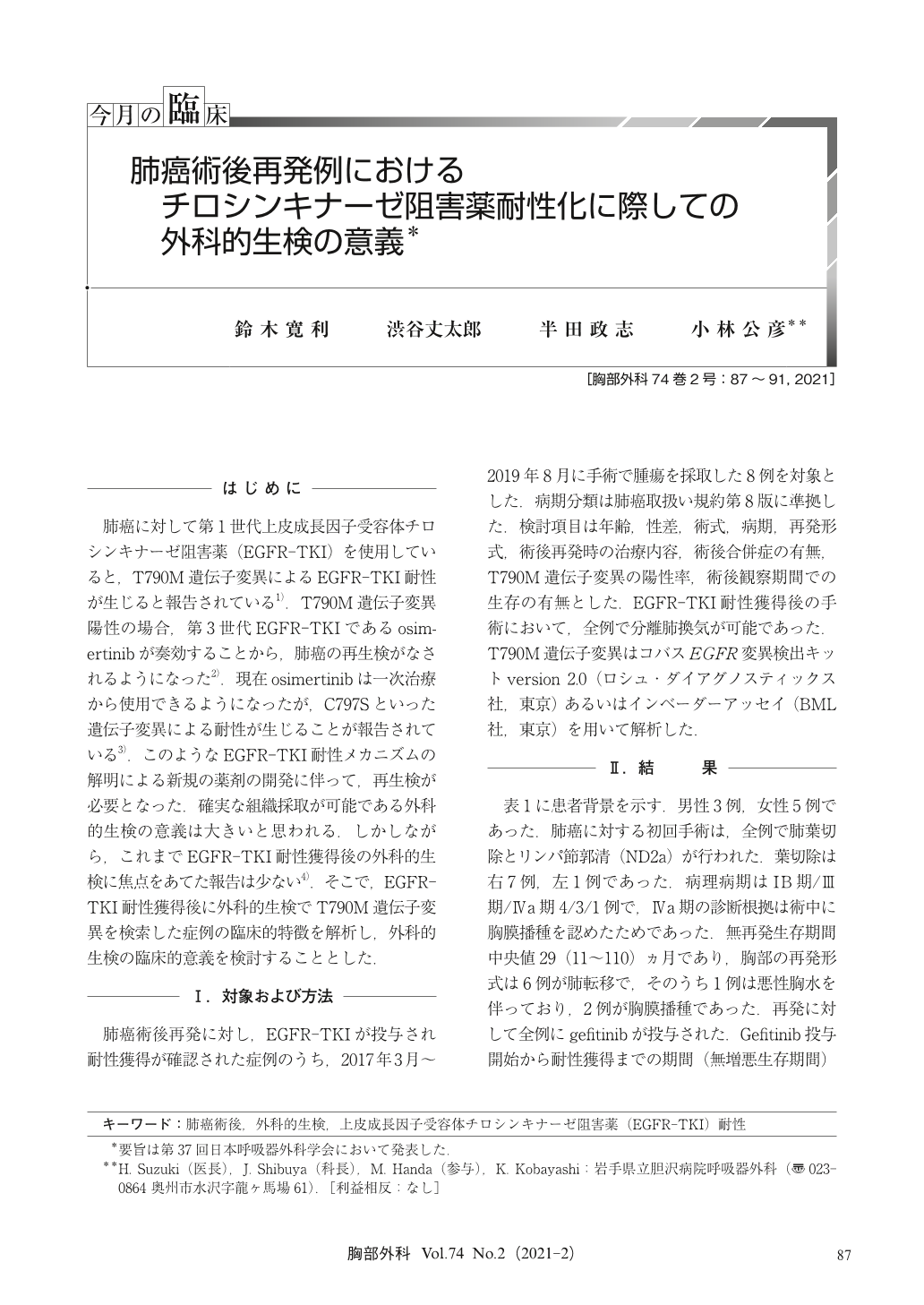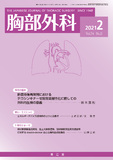Japanese
English
- 有料閲覧
- Abstract 文献概要
- 1ページ目 Look Inside
- 参考文献 Reference
肺癌に対して第1世代上皮成長因子受容体チロシンキナーゼ阻害薬(EGFR-TKI)を使用していると,T790M遺伝子変異によるEGFR-TKI耐性が生じると報告されている1).T790M遺伝子変異陽性の場合,第3世代EGFR-TKIであるosimertinibが奏効することから,肺癌の再生検がなされるようになった2).現在osimertinibは一次治療から使用できるようになったが,C797Sといった遺伝子変異による耐性が生じることが報告されている3).このようなEGFR-TKI耐性メカニズムの解明による新規の薬剤の開発に伴って,再生検が必要となった.確実な組織採取が可能である外科的生検の意義は大きいと思われる.しかしながら,これまでEGFR-TKI耐性獲得後の外科的生検に焦点をあてた報告は少ない4).そこで,EGFR-TKI耐性獲得後に外科的生検でT790M遺伝子変異を検索した症例の臨床的特徴を解析し,外科的生検の臨床的意義を検討することとした.
To evaluate the clinical features of patients who developed resistance to epidermal growth factor receptor tyrosine kinase inhibitors (EGFR-TKIs) administered for postoperative recurrence of lung cancer, we assessed eight patients who underwent surgical biopsy or sampling for the detection of T790M mutation under general anesthesia from 2017 to 2019 in our hospital. All 8 patients had undergone lobectomy with nodal dissection for lung cancer of pathological stageⅠB/Ⅲ/Ⅳa (4/3/1 patients). The median disease-free survival was 29 months (range:11~110 months). The recurrence site was the lung in six patients including malignant pleural effusion in one of six, and two pleural disseminations. All eight patients received gefitinib as first-line treatment. The median age at surgical biopsy was 75 years (range:66~86 years). We performed pleural biopsy in 2 patients, partial lung resection in 5 patients, and pleural effusion sampling in 1 patient in whom our attempt to perform partial lung resection failed because of severe adhesion between the lung and chest wall. T790M mutation was observed in 7 patients (85.7%) and the treatment by osimertinib in 6 patients was effective in 5 patients (83.3%). Surgical biopsy is useful for detecting gene mutations in patients resistant to EGFR-TKIs.

© Nankodo Co., Ltd., 2021


